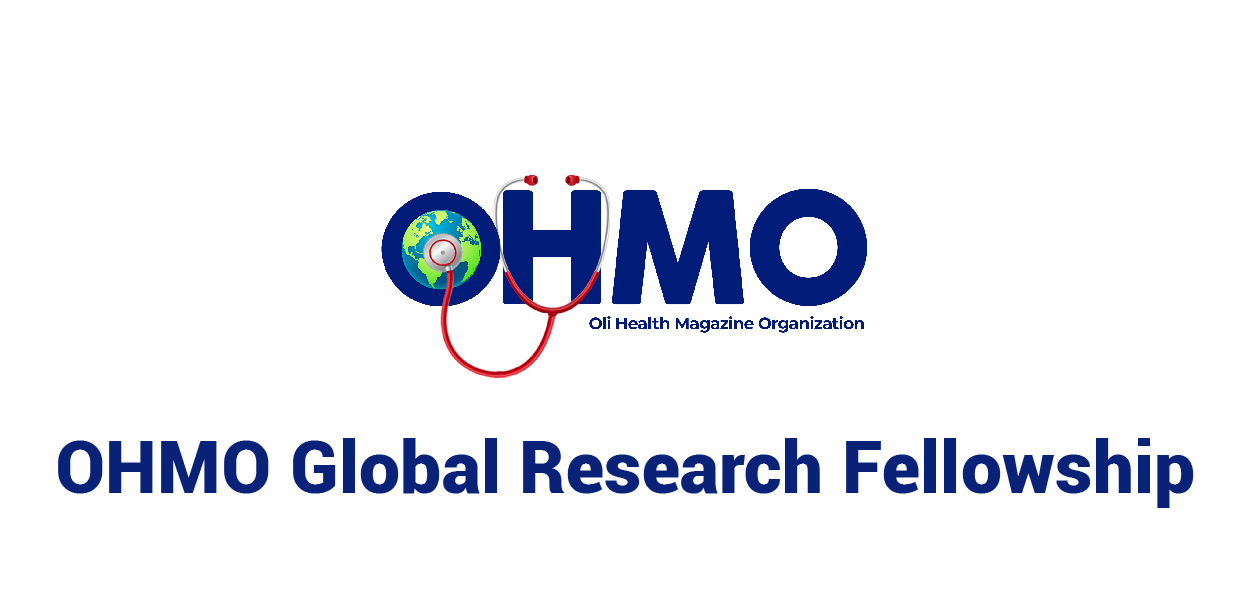Coronavirus is a group of enveloped positive sense RNA virus of family Coronaviridae (1,2).The virus derive its name as corona “crown” due to presence of characteristic spikes on its envelope (2). Coronaviruses frequently cause respiratory, enteric diseases and neurological diseases in birds, mammals and humans (3). Although coronavirus are unappreciated cause of respiratory diseases, yet they contribute up to 15% of common cold cases. The reasons to why the Human Coronavirus (HCoV) are unappreciated as the cause of respiratory diseases are; most of respiratory infections due to (HCoV) occur as co-infections with other viruses such as adenoviruses, rhinovirus and human metapneumovirus, clinical presentations of HCoV respiratory diseases are indistinguishable from clinical picture of other viruses such as rhinovirus infecting the respiratory tract. Presence of HCoV in respiratory tract has been proved following Reverse Transcriptase-Polymerase Chain Reaction and viral culture technique among patients presenting with common cold features (4).
International attention to coronavirus as important human pathogen occurred in since early 21th century following major coronavirus outbreaks that claimed significant number of lives. Currently following Wuhan Outbreak, reported by WHO early in January 10, 2020 there 7 types of coronavirus implicated as human pathogen. These are; HCoV-229E, HCoV-NL63, HCoV-HKU1, HCoV-OC43, SARS-CoV, MERS-CoV (2)and Novel Coronavirus, 2019-nCoV which is implicated in recent Wuhan outbreak. Among these types the serious outbreak occurred were SARS-CoV and MERS-CoV outbreak and recently Wuhan outbreak caused by Wuhan coronavirus, 2019-nCoV.
Severe Acute Respiratory Syndrome associated coronavirus (SARS-CoV) outbreak
Severe Acute Respiratory Syndrome (SARS) is viral respiratory illness caused by corona virus, SARS-CoV. SARS outbreak occurred in different countries but initial source was associated with exposure from single ill health worker from Guangdong Province, Southern China (5). SARS- CoV like was detected in live animals in the market, however also there was serological evidence of SARS-CoV exposure in food handlers in the market suggesting spread of virus from animal reservoir to human. Recent study has also able to detect SARS-CoV like coronavirus from bat faeces which also support zoonotic source of the virus. According to WHO, SARS-CoV outbreak in 2003 had already reported to spread over 30 countries within few month and claimed 800 lives.
SARS-CoV infection has incubation period of 1-14 days and is characterised by non-specific signs and symptoms of fever, malaise, myalgia, headache, chills and rigors (6). The virus causes acute respiratory distress syndrome which leads to respiratory failure.
Middle East Respiratory Syndrome (MERS-CoV) outbreak
The cases reported between 2012 and January 20, 2017 from 27 countries in the world all of which were linked to exposure in Arabian Penisula, Middle East (7). The MERS-CoV cases reported worldwide were nearly 2000 among which at least 659 deaths were reported (7). MERS-CoV infection is associated with acute pneumonia and acute kidney injury.
Wuhan, 2019-nCoV
As of January 10, 2020 WHO reported Wuhan coronavirus (2019-nCoV) outbreak as the rapidly evolving situation. The cases of the 2019-nCoV infections has been also reported in USA where by the first case was reported on January 21, 2020 and the second case was reported recently on January 24, 2020 by Centre for Disease Control and Prevention (CDC).
There is paucity of data specific to Wuhan outbreak regarding specific clinical presentations although non-specific signs and symptoms of fever, difficulty in breathing, cough, headache, malaise and runny nose. Yet intensity of human to human transmission is to be established. However the original source of the virus is yet to be established.
Why is coronavirus outbreak a threat?
Coronavirus is unique RNA virus having ability to proofread its genome and hence able to maintain replication competence (1,8,9). These has been shown to be the roles of non-structural protein 14 (nsp14) (1,8,9). The gene is bi-functional coding for nsp14 ExoN an exo-nuclease which function to maintain CoV replication with high fidelity mutation of which cause reduction of replicative ability of CoV to about 15-20 folds (1,8). Secondly the gene function as N7-methyltransferase playing role in adding methyl group to double stranded RNA (dsRNA) making them non immunogenic to be recognised by hosts immunity hence immune evasion offering survival advantage (1,10).
Although World went through major coronavirus outbreaks; SARS-CoV and MERS-CoV, neither treatment against the virus nor vaccine against the virus is also not yet established (11,12).
Coronavirus has evidence of zoonotic origin and thus any intervention must be inter-disciplinary approach.
There are still ongoing investigation of the new outbreak, Wuhan CoV outbreak that has not yet proven success in treating, preventing and controlling the infection.
Recommendations
Because coronavirus has propensity to infect respiratory and intestinal tracts, having zoonotic sources and being highly communicable, community should observe preventive tips recommended by WHO as follow;
a. Avoid overcrowded areas; unnecessary crowding is discouraged especially in countries where recently cases have been reported.
b. Avoid close contacts; intimacy
c. Animal contacts and closeness is highly discouraged as the coronavirus has zoonotic spread pattern.
d. Thoroughly wash hands during handling foods
e. Actively screening for the coronavirus infection among those travelling from region where the outbreak have been reported
Writer: Zebadia Martin, MD student. UNIVERSITY OF DAR ES SALAAM, TANZANIA
References:
1. Becares M, Pascual-Iglesias A, Nogales A, Sola I, Enjuanes L, Zuñiga S. Mutagenesis of Coronavirus nsp14 Reveals Its Potential Role in Modulation of the Innate Immune Response. J Virol. 2016;
2. Cui J, Li F, Shi ZL. Origin and evolution of pathogenic coronaviruses. Nature Reviews Microbiology. 2019.
3. Singh SK. Middle East Respiratory Syndrome Virus Pathogenesis. Semin Respir Crit Care Med. 2016;
4. Dominguez SR, Robinson CC, Holmes K V. Detection of four human coronaviruses in respiratory infections in children: A one-year study in Colorado. J Med Virol. 2009;
5. Ksiazek TG, Erdman D, Goldsmith CS, Zaki SR, Peret T, Emery S, et al. A novel coronavirus associated with severe acute respiratory syndrome. N Engl J Med. 2003;
6. Peiris JSM, Lai ST, Poon LLM, Guan Y, Yam LYC, Lim W, et al. Coronavirus as a possible cause of severe acute respiratory syndrome. Lancet. 2003;
7. Bouchama A, Luke T, Baillie JK, Ph D, Omari A Al, Hajeer AH, et al. Special Report Middle East Respiratory Syndrome. N Engl J Med. 2017;
8. Smith EC, Blanc H, Vignuzzi M, Denison MR. Coronaviruses Lacking Exoribonuclease Activity Are Susceptible to Lethal Mutagenesis: Evidence for Proofreading and Potential Therapeutics. PLoS Pathog. 2013;
9. Smith EC, Sexton NR, Denison MR. Thinking Outside the Triangle: Replication Fidelity of the Largest RNA Viruses. Annu Rev Virol. 2014;
10. Case JB, Ashbrook AW, Dermody TS, Denison MR. Mutagenesis of S -Adenosyl-l-Methionine-Binding Residues in Coronavirus nsp14 N7-Methyltransferase Demonstrates Differing Requirements for Genome Translation and Resistance to Innate Immunity . J Virol. 2016;
11. Skariyachan S, Challapilli SB, Packirisamy S, Kumargowda ST, Sridhar VS. Recent aspects on the pathogenesis mechanism, animal models and novel therapeutic interventions for middle east respiratory syndrome coronavirus infections. Frontiers in Microbiology. 2019.
12. Mubarak A, Alturaiki W, Hemida MG. Middle east respiratory syndrome coronavirus (mers-cov): Infection, immunological response, and vaccine development. Journal of Immunology Research. 2019.




16 Comments
Dr. Sel�uk
01 February 2020 12:10Zebadia Martin
01 February 2020 12:58Wendy Amos
01 February 2020 14:24Denis Edward
01 February 2020 15:22Joannes Katoto
01 February 2020 16:24Marwa
01 February 2020 18:33Dominiko Masunzu
01 February 2020 22:38Dominiko Masunzu
01 February 2020 22:50Dr Ambrose
01 February 2020 22:52Kelveen njawike
02 February 2020 07:51Robert
02 February 2020 08:27Mich
02 February 2020 12:46Majaliwa
03 February 2020 09:33Raymond
03 February 2020 18:48Dunstan Mauya
09 February 2020 20:02Jaddi
10 February 2020 09:58